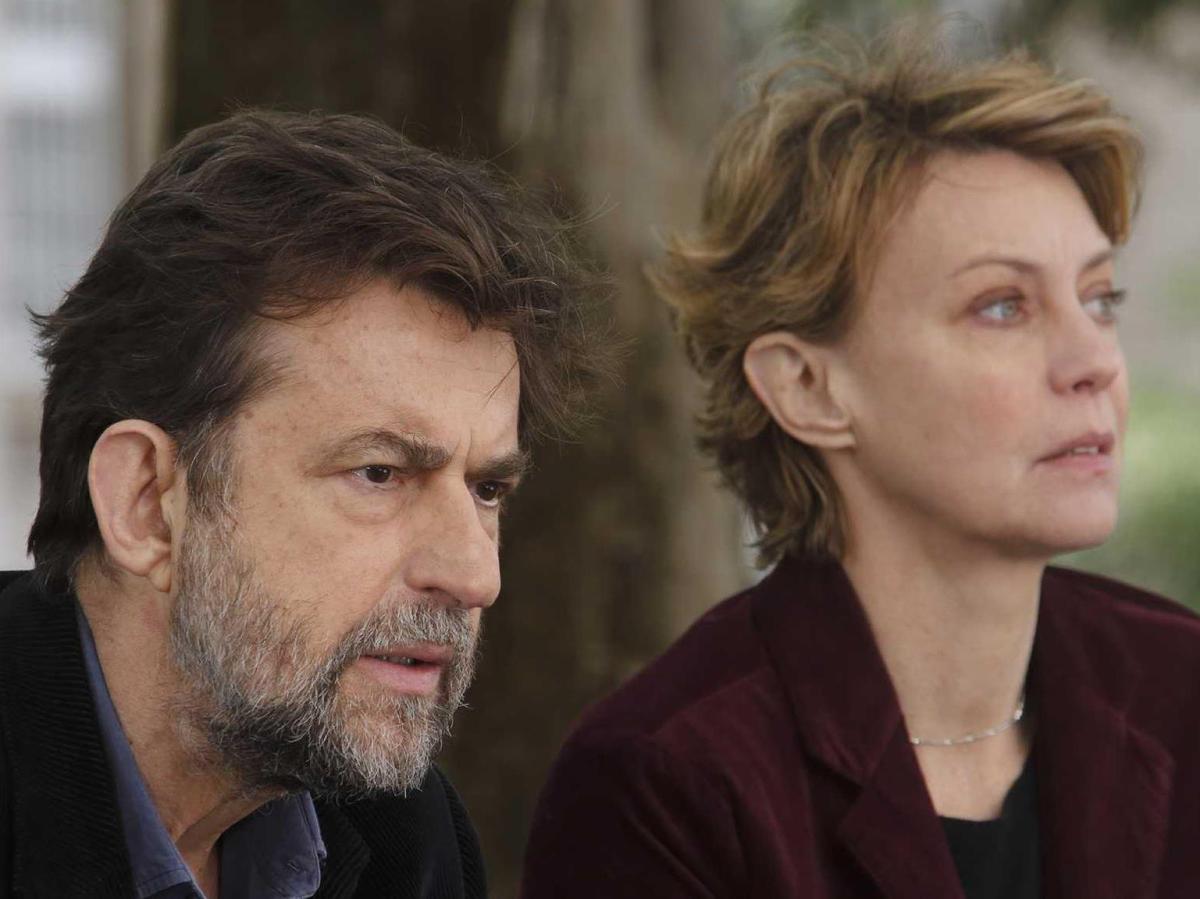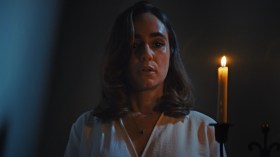Mia Madre, the latest film from Italian writer, director and actor Nanni Moretti (We Have A Pope), flits between moments seemingly mundane and strikingly less so. In the former camp sit routines of work and home; in the latter, the incursions that offer a diversion from the ordinary. As professional and personal crises mount, the usual sequence of unremarkable events is cast as wearying and grey, while those not so usual — both for better and worse — are framed as dynamic, though reality actually lurks in their combination. In making a movie about a filmmaker troubled by her mother’s ill health during the production of her newest feature, Moretti weaves the two into a textured tapestry.
On screen, the soon-to-be bereaved figure is Margherita (Margherita Buy, People Who Are Well). The pressures of the political film she’s shooting, focusing on factory workers fighting for better conditions, take precedence over more intimate issues, namely the end of her relationship and the ailing nature of her mother (Giulia Lazzarini, Piazza Fontana: The Italian Conspiracy). There, her brother Giovanni (Moretti) is on hand to assist, though he’s also battling his own work-life troubles. While he is dedicated to finding the right Wnce, she is initially unable to see that something might be wrong.
Accordingly, Margherita both soldiers on and struggles to cope, with Mia Madre charting the sometimes loud, more often quiet clashes that spring between her version of normality and the intrusion of realisations that her existence has become anything but. Indeed, as it chronicles her efforts, the film moves forward in the same fashion, contrasting the slow-building mood with more frenetic slivers of drama. Moretti thus adopts a patient gaze as his baseline, then litters his carefully composed offering with bursts of energy focused around performances. It is in this marriage of different parts that his cast shines, particularly the juxtaposed portrayals of Buy and John Turturro (Exodus: Gods and Kings).
As Barry Huggins, the demanding American actor with stories of former grandeur flown in to star in Margherita’s movie, Turturro steals every scene he’s in as the manifestation of selfish and clueless desires played out to the extreme. His overt theatrics in the film-within-a-film sequences comically rankle against the more introverted angst sighted in Buy, as well as providing the necessary catalyst to move the story and its corresponding awakenings forward. Though the machinations at play are far from hidden, as a writer with Francesco Piccolo (Human Capital) and Valia Santella (Honey), Moretti both takes his time in teasing out the conflict and shows an understanding of the force of the emotions he’s playing with. As a performer, the filmmaker’s own efforts typify his approach as he coaxes what could’ve been a supporting character into becoming one of the feature’s most telling elemnts.
So it is that Mia Madre offers a glimpse of grief — albeit of the largely impending variety — and its intersection with messy lives in a warmly shot and welcomely intimate fashion. That the film was inspired by Moretti’s own experience in making his last effort won’t come as a surprise, nor will his tackling such sensitive territory after winning the Cannes Film Festival Palme d’Or in 2001 for The Son’s Room, as well as starring in and writing the similarly themed Quiet Chaos. What is less expected is the feeling of slightness that emanates, even from such authentically scripted and acted material; in accepting that the trivialities of life will always eventually eclipse the heaviness of death, perhaps that’s the point.
Rating: 3 stars out of 5
Mia Madre
Director: Nanni Moretti
Italy/France, 2015, 106 mins
Lavazza Italian Film Festival
www.italianfilmfestival.com.au
Sydney: 15 September – 11 October
Melbourne: 16 September – 11 October
Adelaide: 17 September – 7 October
Byron Bay: 18 – 27 September
Canberra: 22 September – 11 October
Perth: 24 September – 14 October
Brisbane: 1 – 18 October
Hobart: 15 – 21 October
Actors:
Director:
Format:
Country:
Release:





